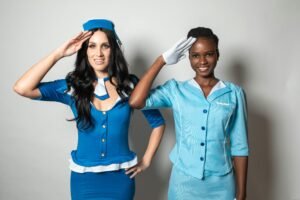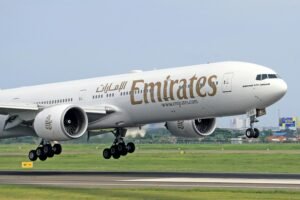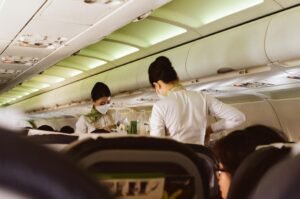Steps to Prepare for Airline Job Interviews in Chicago
Airline jobs are some of the most sought-after positions in the travel and hospitality industry. With Chicago being one of the largest airline hubs in the United States, opportunities for airline careers abound. If you’re aiming for a position with a major airline, you’ll need thorough preparation for the interview process. Here, we outline the comprehensive steps you should follow to prepare effectively and increase your chances of landing the job.
1. Understand the Job Requirements
Each airline position, whether it be a flight attendant, customer service representative, pilot, or ground operations staff, comes with specific requirements. Make sure you have a clear understanding of the qualifications, skills, and responsibilities associated with the position you’re applying for.
- Review the Job Description Carefully: Study the requirements listed in the job description. If it’s a flight attendant position, focus on skills like communication, emergency response, and customer service.
- Research the Airline: Understand the culture, mission, and values of the airline you are applying to. Chicago-based airlines like United Airlines or American Airlines may have specific qualities they look for in candidates.
- Know Industry Standards: Familiarize yourself with industry standards, as many airlines share common requirements. For example, knowledge of Federal Aviation Administration (FAA) regulations can be beneficial.
2. Polish Your Resume and Cover Letter
The airline industry is competitive, so a well-crafted resume and cover letter are essential to stand out.
- Highlight Relevant Experience: Tailor your resume to showcase relevant skills and experience. If you’re applying for a customer service role, highlight any experience where you interacted with customers or managed conflicts.
- Use Action-Oriented Language: Use strong action verbs to describe your achievements. For example, “Managed a team of five customer service representatives” sounds more professional than “Was responsible for a team.”
- Customize Your Cover Letter: Make sure your cover letter speaks directly to the role and the airline. Mention why you are drawn to working with their specific airline and how your background aligns with their values and mission.
3. Research the Airline and Industry Trends
Employers value candidates who are knowledgeable about industry trends and their company’s position within the industry.
- Stay Updated on Industry News: Follow the latest trends in the airline industry, such as sustainability initiatives, technological advancements, or shifts in travel patterns. Websites like Airline Weekly and the FAA can provide useful insights.
- Understand the Company’s Recent Developments: Familiarize yourself with recent developments in the airline you’re applying to. If they have launched new routes or updated their fleet, mention your awareness of these developments to show your genuine interest.
- Learn About Competitors: Be aware of the major competitors of the airline you’re applying to. In Chicago, United Airlines and American Airlines are two giants. Knowledge of how they compare to competitors like Delta or Southwest Airlines can be beneficial.
4. Prepare for Behavioral Interview Questions
Airlines rely heavily on behavioral interviews to understand how you handle different situations and challenges.
- Use the STAR Method: Prepare to answer questions using the STAR (Situation, Task, Action, Result) method, which provides a structured way of responding to behavioral questions. Describe the context (Situation), the challenge (Task), the steps you took (Action), and the outcome (Result).
- Practice Common Questions: Typical behavioral questions may include “Describe a time you handled a difficult customer” or “Give an example of a time when you had to work under pressure.” Practice your responses to these questions, focusing on your problem-solving skills and resilience.
- Prepare Stories of Relevant Experiences: Think of situations from past experiences where you demonstrated adaptability, patience, and teamwork—traits that airlines highly value.
5. Prepare for Technical and Role-Specific Questions
Depending on the role, you may encounter technical questions to gauge your specific skills.
- Flight Attendant Role: Expect questions about safety protocols, emergency response, and communication skills. You may also be tested on how you would handle certain scenarios, like managing disruptive passengers.
- Pilot Role: Prepare for in-depth questions about flight mechanics, aviation regulations, and possibly a technical skills test.
- Customer Service Role: Focus on questions about conflict resolution, empathy, and efficiency under pressure.
- Ground Operations Role: Be ready to discuss logistical skills, familiarity with equipment, and your ability to handle time-sensitive tasks.
6. Prepare Physically and Mentally for the Interview Day
Your presentation and mindset play a significant role in the interview process.
- Dress Professionally: Airlines have specific grooming standards, especially for roles involving customer interaction. Dress conservatively and professionally, and pay attention to grooming details.
- Be Punctual: Arriving on time is critical. If the interview is in Chicago, consider potential traffic or transit delays, and plan to arrive at least 15 minutes early.
- Maintain a Positive and Calm Demeanor: The airline industry requires calm and composed employees. Practice mindfulness or breathing techniques to help control any nervousness.
7. Ask Thoughtful Questions
At the end of the interview, you’ll often have the chance to ask questions. Thoughtful questions not only show interest but can also give you a clearer sense of the company’s culture and expectations.
- Inquire About Growth Opportunities: Ask about the potential for career growth within the airline.
- Understand Training Programs: Airlines often have specific training programs for new hires. Ask about the type and duration of training for the role.
- Clarify Expectations: Ask about day-to-day responsibilities and any specific goals for the position in the first few months.
8. Follow Up with a Thank-You Email
After the interview, follow up with a personalized thank-you email. Mention specific details from the interview to reinforce your interest and leave a lasting impression.
- Send the Email Within 24 Hours: Timely follow-up shows professionalism and respect for the interviewer’s time.
- Reiterate Your Enthusiasm: Highlight a part of the conversation that stood out to you and restate your enthusiasm for joining the airline team.
- Keep It Brief but Sincere: A short and sincere message works best. Thank the interviewer for their time and express appreciation for the opportunity to discuss the position.
9. Prepare for Potential Next Steps
The interview process might involve multiple rounds, including group interviews, skills assessments, and sometimes even a job simulation.
- Be Ready for Group Interviews: Group interviews are common for airline positions, especially for flight attendants. Practice speaking confidently in a group setting, and make sure to showcase teamwork and communication skills.
- Prepare for Skills Assessments: Some roles may require you to pass a technical assessment or simulation. For instance, flight attendants may need to demonstrate emergency procedures.
- Stay Flexible with Follow-Up Timing: Airline hiring processes can sometimes take a while due to background checks and regulatory requirements. Be patient and remain professional during any follow-up communications.
Pursuing a career in the airline industry in Chicago can be incredibly rewarding. By following these steps, you’ll be well-equipped to present yourself as a top candidate and increase your chances of landing your dream job.












